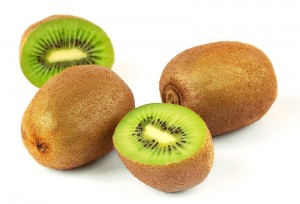Diabetes is a metabolic disease that kills 3. 4 Million People in 2004 according to the World Health Organization. It is characterized with high blood sugar level because pancreas does not produce enough insulin or the cell is resistant to the insulin. Added by the WHO, this will be the 7th leading cause death this 2013. Because of this alarming rate of death that increase every year, they recommend population-wide approaches to promote healthy diet and regular physical activity, thereby reducing the growing global problem of overweight and obesity.
 In promoting healthy diet, the diabetic patient needs to minimize the intake of foods high in carbohydrates, sugar fats and cholesterol. The need to be cautious in taking medication and following the strict regulation of blood sugar plus weight regulation is a burden for those clients. They are probably thinking how they can enjoy the sweetness of fruits if they have diabetes?
In promoting healthy diet, the diabetic patient needs to minimize the intake of foods high in carbohydrates, sugar fats and cholesterol. The need to be cautious in taking medication and following the strict regulation of blood sugar plus weight regulation is a burden for those clients. They are probably thinking how they can enjoy the sweetness of fruits if they have diabetes?
Mrs. Kamna Desai a nutritionist said that, diabetics can have fruits provided that fruits must be consumed in a limited quantity.
For this moment, let’s talk about the Kiwi fruit. Studies have showed that Kiwi can be consumed by patients having type 1 and 2 diabetes.
- Due to its fiber and fructose found in Kiwi fruits, the glycemic index is extremely low (53). This mean that eating this fruit will not increase blood sugar level significantly.
- It contains Inositol necessary for controlling blood sugar levels in diabetics. It enhances the sensitivity of insulin in the human body which can lead to higher absorption of glucose into the cell that lessens the sugar in the blood stream.
- Kiwi fruit is low in fat that aid in gaining weight. The weight of type 2 patients need to be regulated so that their diabetes will also controlled.
- It has the ability of protecting DNA from oxygen related damage because Kiwi is high in phytonutrients. Though researchers are not yet certain which specific compounds that give a protective antioxidant capacity, they are convinced that with the help of these varieties of flavonoids and carotenoids act as antioxidant, these phytonutrients in kiwi may be responsible for this DNA protection.
- Vitamin C and A is present that promotes faster healing process and good eyesight.
- Besides it will help lower the risk of cardiovascular disease because it reduces the fats and diminishes the risk of blood clot;
- Rich in polyphenols, and potassium, which may function individually to protect the blood vessels and heart.
Nutritional Facts:
|
See the table below for in depth analysis of nutrients: Kiwi fruit or Chinese gooseberry (Actinidia chinensis), |
||
|
Principle |
Nutrient Value |
Percentage of RDA |
| Energy | 61 Kcal | 3% |
| Carbohydrates | 14.66 g | 11% |
| Protein | 1 g | 2% |
| Total Fat | 0.52 g | 2% |
| Cholesterol | 0 mg | 0% |
| Dietary Fiber | 3 g | 8% |
|
Vitamins |
||
| Folates | 25 µg | 6% |
| Niacin | 0.341 mg | 2% |
| Riboflavin | 0.025 mg | 2% |
| Thiamin | 0.027 mg | 2% |
| Vitamin A | 87 IU | 3% |
| Vitamin C | 92.7 mg | 154% |
| Vitamin E | 1.46 mg | 10% |
| Vitamin K | 40.3 µg | 34% |
|
Electrolytes |
||
| Sodium | 3 mg | 0% |
| Potassium | 312 mg | 7% |
|
Minerals |
||
| Calcium | 34 mg | 3.5% |
| Copper | 0.130 mg | 14% |
| Iron | 0.31 mg | 4% |
| Magnesium | 17 mg | 4% |
| Manganese | 0.098 mg | 4% |
| Zinc | 0.14 mg | 1% |
|
Phyto-nutrients |
||
| Carotene-ß | 52 µg | — |
| Crypto-xanthin-ß | 0 µg | — |
| Lutein-zeaxanthin | 122 µg | — |


Trackbacks/Pingbacks